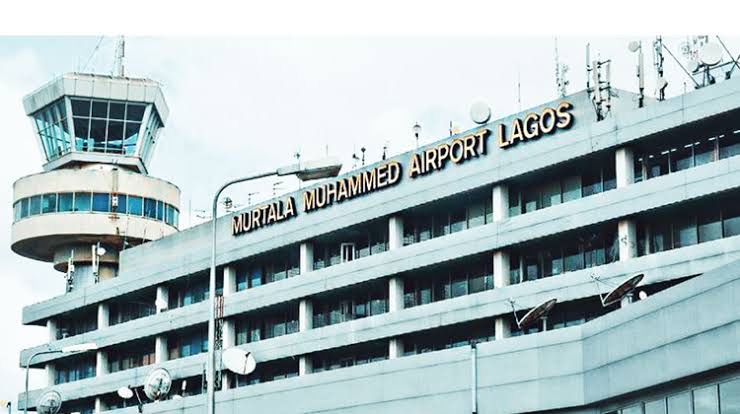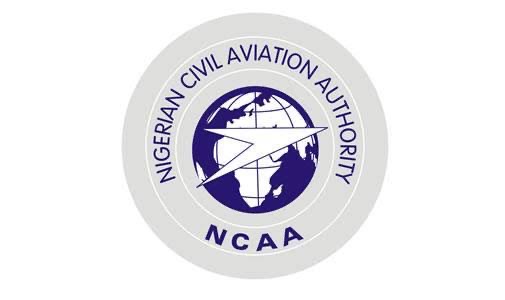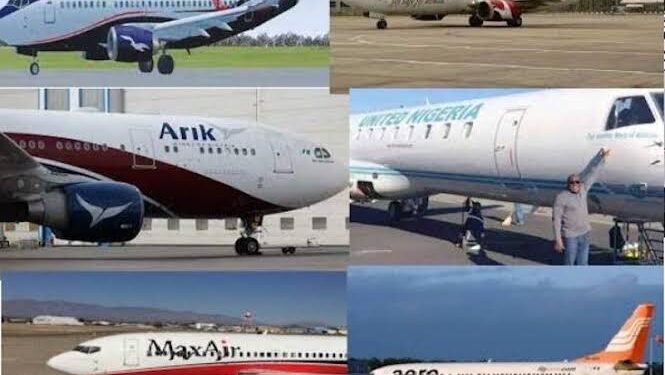The current aircraft shortage in Nigeria’s aviation industry is putting pressure on airlines and service providers, affecting their revenues.
Airlines that have sent their aircraft for maintenance are unable to return them due to rising costs caused by foreign currency shortages.
According to a Reporters’ review, some airlines have been forced to ground their aircraft by the Nigerian Civil Aviation Authority (NCAA) after they were unable to send their aircraft for maintenance.
Service providers such as aviation agents, ground handlers, airline catering services, and fuel retailers have been affected by the reduction in the number of aircraft in the air.

According to the data obtained by Journalists from the NCAA, 13 domestic airlines operate a total of 91 aircraft. The data also includes aircraft under maintenance.
Sources close to the NCAA told Journalists that, excluding the grounded Dana Air, more than half of the industry’s 91 aircraft are under maintenance.
According to a Reporters’ review, five years ago, when only 10 domestic airlines were operating, there were more than 120 aircraft in domestic service.
As stated by the National Bureau of Statistics (NBS)’s “Foreign Trade in Goods Statistics’ by the National Bureau of Statistics (NBS) for Q1’24, Nigeria’s spending on kerosene-type jet fuel importation fell quarter-on-quarter (QoQ) by 87 percent to N31 billion in the first quarter of 2024 (Q1’24) from N239.18 billion in Q4’23.
Aviation industry stakeholders argue that this decline in jet fuel imports is inseparable from the current aircraft shortage in the country.

“Whenever the operations of the airlines are affected by the aircraft shortage, their revenues are also affected.
“Allied service providers – FAAN, NAMA, ground handlers, catering, fuel marketers, and even NCAA, charge five percent on airline tickets and cargo sales”, John Ojikutu said.
Aviation management consultant Babatunde Adeniji told Business Day that aircraft represent an airline’s capacity. The less capacity you have, the less profit you will make (revenue, not profit).
“More revenue does not automatically translate to more profit. Remember the mantra: Revenue is vanity, profit is sanity, but cash is king. Airlines obviously should be more focused on profit and have to make decisions to maximize profit and not necessarily capacity or revenue. In most cases, they are barely surviving or trying to survive.
“Airlines operate as part of an ecosystem where their dependence on economic development and fuel is high and the industry structure is such that all five forces (i.e. threat of new entry, internal rivalry, buyer power, supplier power, and the threat of substitutions) work so strongly to make it almost impossible to make a profit. The “6th force” government exacerbates the poor underlying economics by amplifying its weakness with poor policies and choices,” Babatunde said.
“The entire industry must be orchestrated strategically (all parts, public and private must work together optimally) to deliver the synergy that will create the most value for the customer and adequate returns for all stakeholders.
Airport revenues consist of both aeronautical revenues, which include key components such as passenger fees, landing fees, terminal rentals, and security charges, and non-aeronautical revenues, which include revenues from sources such as concessions, land rentals, and free zones. Fewer aircraft in use could impact industry revenues.
According to the International Air Transport Association (IATA), revenue management is the backbone of the aviation business.

































